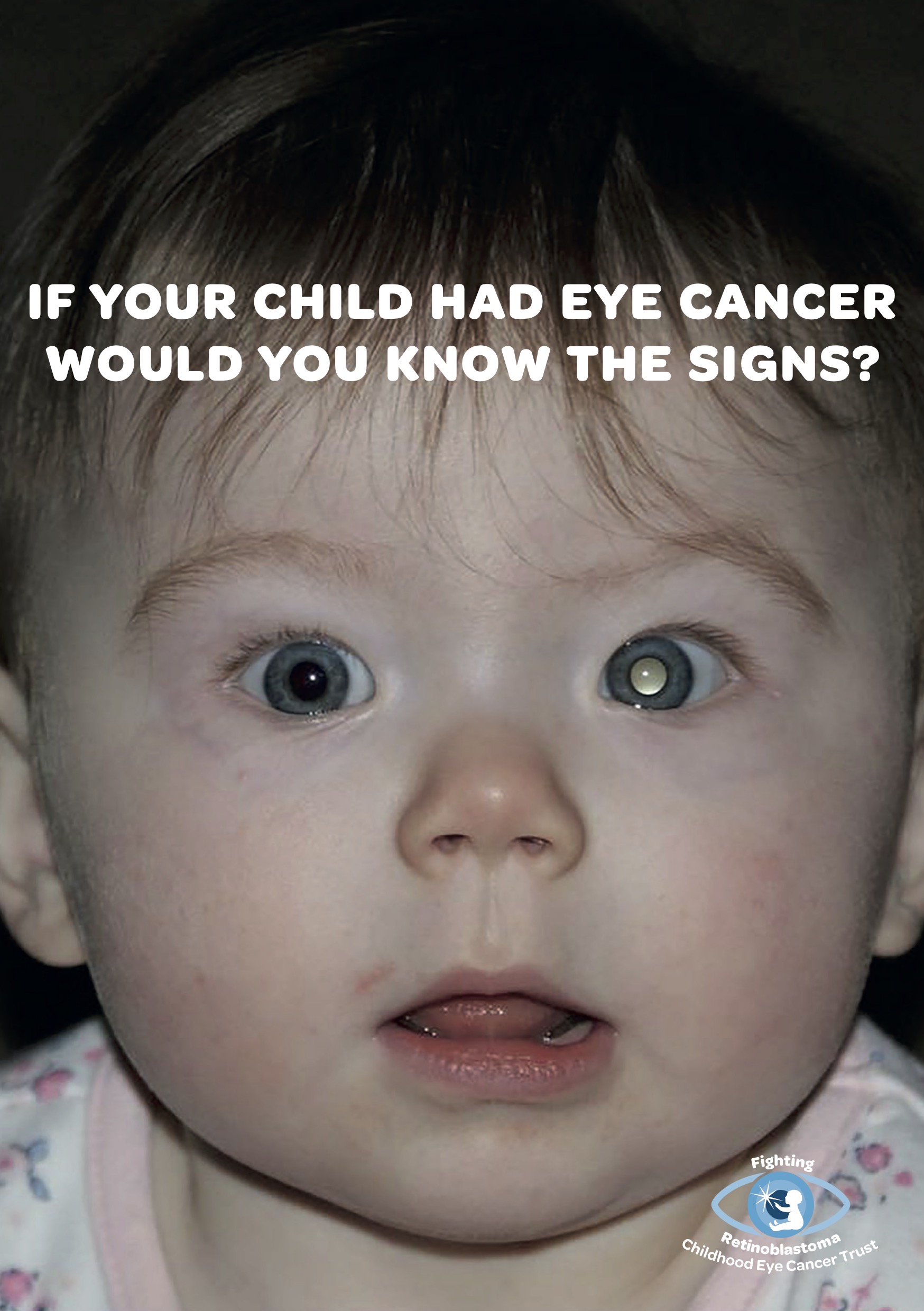Eye Health Care Charity of the Month

Obtain a free signs and symptoms leaflet for your practice reception area
The Childhood Eye Cancer Trust (CHECT) is the UK’s only dedicated charity supporting anyone affected by the rare eye cancer retinoblastoma (Rb).
Rb occurs in babies and young children up to the age of six, with around one child a week in the UK diagnosed with this cancer. Although 98 per cent of children survive Rb in the UK, early diagnosis is critical in saving a child’s eyes, sight and life. Almost half of all children diagnosed with Rb will have an eye removed as part of their treatment, and many will experience some degree of visual impairment lifelong.
Approximately 45 per cent of children diagnosed with Rb have the heritable form, which may be passed on to any future children. Where there is a family history, babies are screened from birth. Where there is no family history, symptoms are usually noticed by one of their parents, carers or guardians.
The most common symptoms are: a white glow in the child’s eyes seen either in dim lighting or when a photo is taken using a flash; or a new squint.
Given the age of the children affected, they will usually be taken to either their GP, health visitor or local optometrist in the first instance.
Annual survey
CHECT undertakes an annual survey, which tracks a family’s experience of being diagnosed with Rb in the UK. The aim is that by recording and reporting this information, we can identify where problems are occurring, and what CHECT may be able to do to help.
In the last 10 years, CHECT has collected information from the parents of 332 children newly-diagnosed with Rb, where there was no prior family history. During this time, on 96 occasions parents tried to have their child examined by an optometrist (some parents may have taken their child to more than one optical practice).
Just over two thirds of these attempts resulted in the appropriate urgent onward referral for the child with Rb. On some occasions, parents were turned away by front-of-house staff and told their baby was too young to be seen. This is frustrating, because we know that when children are examined by an optometrist, they have an excellent chance of the signs of Rb being spotted and the correct referrals made.
Dedicated support
There are two specialist Rb centres in the UK where children are diagnosed and treated: Birmingham Women’s & Children’s Hospital and the Royal London Hospital. Here they are cared for a by a specialist clinical team. CHECT are honoured to be able to work alongside these teams on a day-to-day basis by having a dedicated support worker based in each hospital.
Our support workers complement the work of the clinical teams by offering practical and emotional support: whether that is helping with applying for grants and benefits; maintaining regular contact with families; helping to apply for holidays and wishes; or organising regional meet-ups for families, and other age groups.
As well as supporting families through the diagnosis and treatment stage, our support workers are there for young people as they navigate the teenage years, through to adulthood, planning families of their own, and beyond.
Funding research
Additionally, CHECT funds research aimed at reducing the impacts of Rb; and drives awareness to help spot the signs and symptoms leading to early diagnosis.
We believe that by driving early diagnosis, funding research and offering lifelong support we can lessen the impact of Rb now and in the future.
World Retinoblastoma Awareness Week
World Retinoblastoma Awareness Week is an annual event that runs from 12-18 May 2024, and is a brilliant opportunity to do what it says on the tin – raise awareness.
There are a few different ways that you can help CHECT in the work that we do to support all those affected by Rb in the UK. Whether you’re organising an event or simply sharing one of our social media posts, we are incredibly grateful to each and every one of you for your support – thank you.
What can you do?
• Familiarise yourself with the signs and symptoms of retinoblastoma
• Like and share our posts, photos and videos during World Retinoblastoma Awareness Week
• Run through the Referral Protocol for Suspected Retinoblastoma at your next team meeting to ensure that everyone in store knows what to do if a parent contacts the practice mentioning any of the signs of Rb
• Hold a fundraising event like Crazy Glasses in-practice or take part in one of our many new challenge events
• Download and share our content on your social media channels during World Retinoblastoma Awareness Week – be sure to tag us and use our hashtag #RbWeek
• Contact us on info@chect.org.uk for Rb signs and symptoms leaflets for your reception area
Get involved in fundraising
As a small charity that receives no government or regulatory funding, we rely on the generosity of our supporters and members of the public. So why not get involved in one of our new challenge events including the 2025 TCS London Marathon, become a regular donor or get your employer involved so we can help more families affected by Rb?
For more ideas or support on how to get involved in fundraising for CHECT, get in touch with Maddie, our fundraising officer, at fundraising@chect.org.uk
Childhood Eye Cancer Trust – www.chect.org.uk